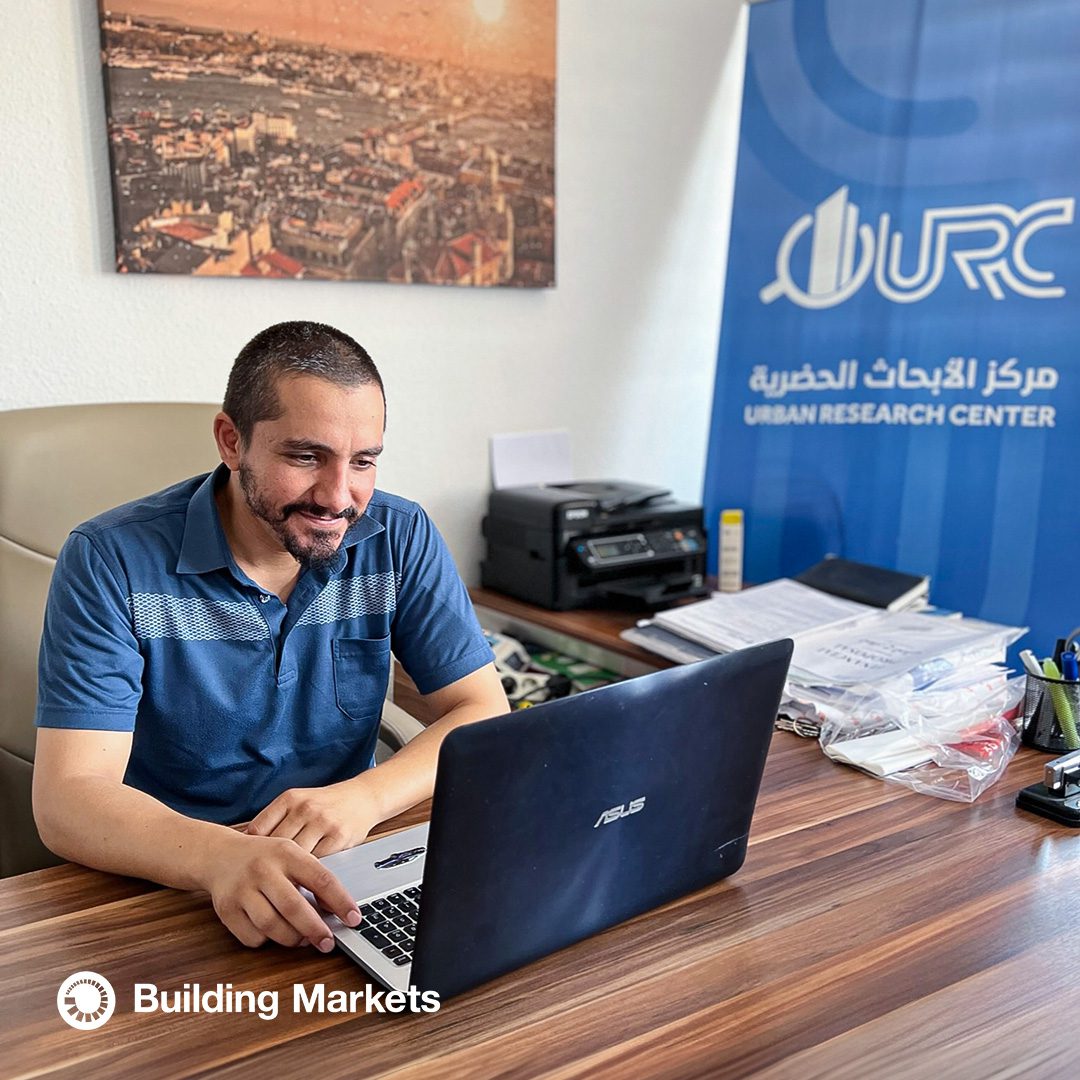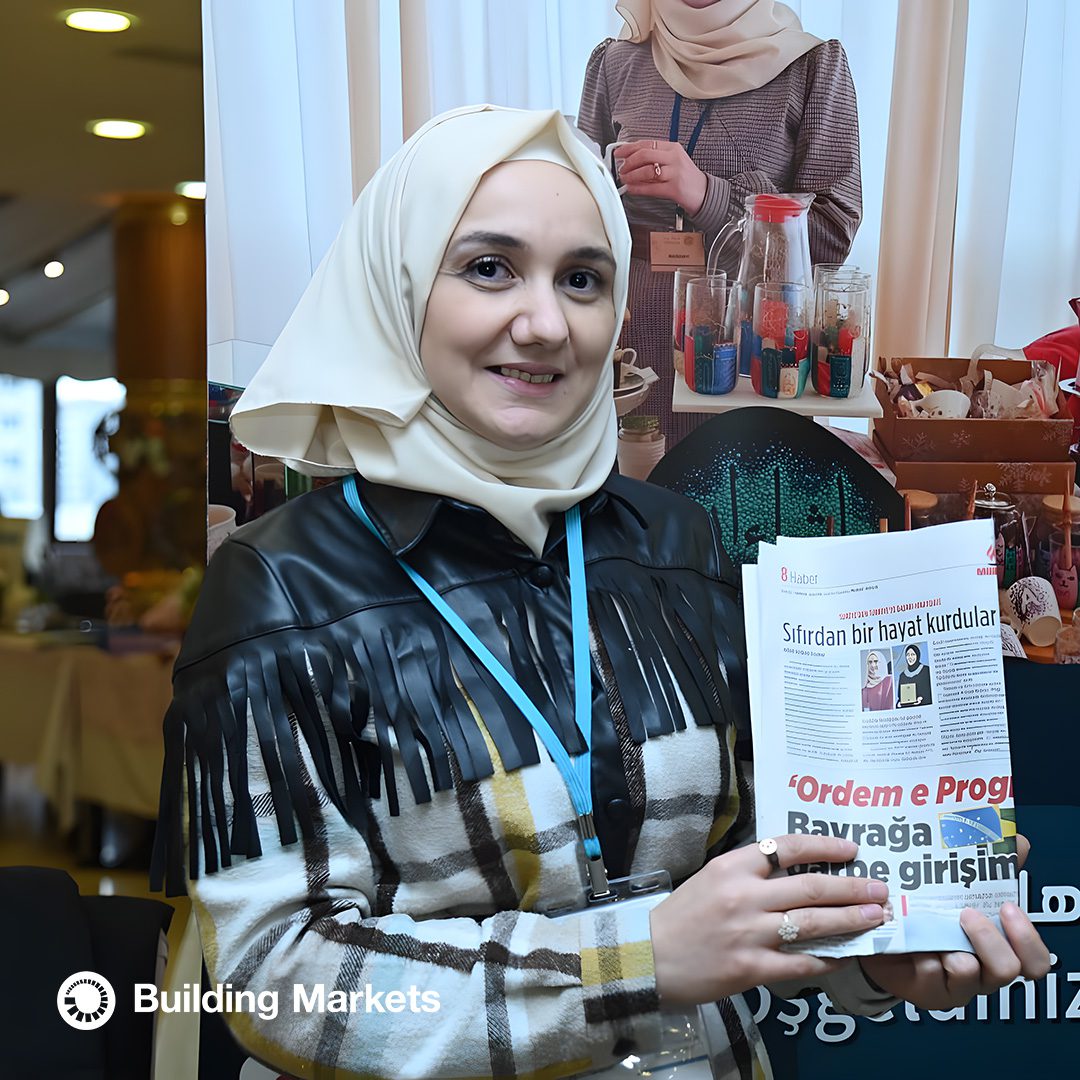Today is World MSME Day, which means Building Markets will be joining countless other NGOs, governments, and private sector partners in celebrating the big impact small businesses make around the world! In today’s rapidly changing global landscape, micro, small, and medium-sized enterprises (MSMEs) remain the backbone of economies worldwide and powerful engines to drive local development.
According to the International Labor Organization, MSMEs comprise 90% of all businesses and employ 70% of the global workforce. In many countries, they make up more than 40% of GDP. These small businesses drive innovation and entrepreneurship and play a pivotal role in job creation, community strengthening, environmental sustainability, and economic resilience. When small businesses thrive, individuals and families access stable livelihoods, education, healthcare, and a better quality of life.
But maximizing the potential of MSMEs requires us to recognize a few realities.
First, we must question the assumption that all MSMEs want to grow. As the CEO of a small and growing nonprofit, I am acutely aware of the difficult choices that need to be made about where and how we choose to focus on growing. Staff time spent on unsuccessful funding opportunities can be painful to absorb and take them away from the critical function of delivering impact. At the same time, too much success without the necessary human resources to deliver can mean long, stressful hours on top of a demanding home life for me or my staff. These are the same considerations that business leaders in our network face, particularly women leaders, as they pursue or defer higher-value market opportunities. Overcoming these challenges requires the technical skills of knowing how to win bids successfully and the wisdom that often comes through mentorship and advice on managing growth effectively.
Second, small business owners from communities affected by marginalization – whether based on their race, gender, age, sexual orientation, migration status, or zip code (to name just a few disadvantaging characteristics) face a triple whammy of barriers to their inclusion and growth:
Institutional policies and how they are implemented are tainted with historic and often entrenched biases that disproportionately affect people challenged by marginalization. These can result in deep and long-lasting differences in outcomes for marginalized versus majority business leaders and their staff. It will take women workers 135 years to be paid as much as men, and it will take 100 years for a child from a low-income family to earn the average income (in advanced economies – it is far longer elsewhere).¹
Small business owners don’t have access to the information, networks, resources, or know-how to pursue or win high-value economic opportunities they could be unlocking. This is a matter of resources as well as confidence. Women are 20% more likely than men to report a “fear of failure” preventing them from starting a business, and Female-led SMEs are 20% more likely not to adopt digital solutions to improve productivity.²
Buyers – whether corporate, government, or public sector, favor familiar and well-established suppliers. In the United States, where the federal government is the single largest buyer in the economy, minority-owned businesses represent 24% of eligible businesses for federal contract awards, but in 2021 accounted for just 3% of awards.³ If black and brown businesses received federal contracting dollars in proportion to their share of United States employer businesses, the difference in annual federal contracts won could be more than $60 billion.⁴
A successful and sustainable approach to MSME growth requires us to focus on all three of these elements, using all the available tools that we have across MSME capacity development, financial inclusion, buyer engagement, and policy reform.
These are the directions framing our thinking for Building Markets’ 2023-2028 strategy that we are excited to share with you in the coming months.
So as we celebrate World MSME Day, what can we do?
1. Recognize that supporting the growth of MSMEs naturally leads to more inclusive and resilient economies. MSMEs foster healthy competition, driving larger businesses to innovate, adapt, and stay relevant. MSMEs also often have strong connections to local suppliers, fostering domestic value chains. This localization of economic activities strengthens the resilience of communities during times of crisis, like the recent earthquakes in Türkiye and Syria.
2. Learn from good practice – we are excited to host a discussion with our colleagues at the Refugee Self-Reliance Initiative on “Accelerating local economic development through refugee-led SMEs” to hear examples of how programs are maximizing across MSME, buyer, and policy incentives to create meaningful impact for the people powering MSMEs and their communities.
3. Recognize what is yet to be learned and tested. As we have discussed in previous blogs – there is a dearth of evidence on how to create an impact for small businesses through market access interventions. We are excited to look across disciplines – from economics to social psychology – to understand the levers for change and the range of possible impacts. But we are also committed to learning, through iterative design, what the most effective operational models for delivering impact might be.
Today and every day, we recognize the transformative power of MSMEs and the people behind them to create an environment that fosters growth. This week we’ll be sharing stories of entrepreneurs in our network, introducing you to the local staff that drives our impact, and amplifying our partners with whom we could not work without. Please join us!
¹ Global Gender Gap Report 2021, World Economic Forum, 2021; A Broken Social Elevator? How to Promote Social Mobility, OECD, 2018.
² Entrepreneurship Policies through a Gender Lens, OECD, 2021; Accelerating SME recovery to unlock £140bn boost to UK economy, NatWest Group 2021
³ Progress in Procurement: Equity in Federal Contracting, Department of Labor, 2021
⁴ Shut Out: The Dearth of Opportunity for Minority Contracting, Alliance for Entreprenuerial Equity, 2022





